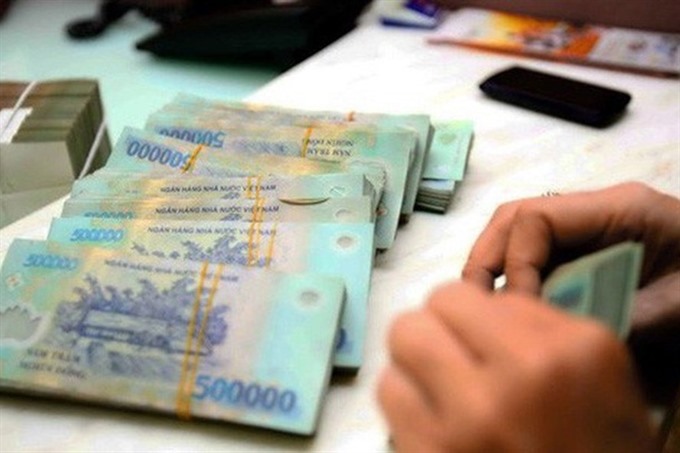 Society
Society

Monthly minimum wage will increase from VNĐ1.39 million (US$60) to VNĐ1.49 million ($65) at the beginning of July next year, according to the National Assembly’s Resolution 70/2018/QH14.
 |
| Monthly minimum wage will increase from July next year following the National Assembly’s resolution. — Photo laodong.vn |
HÀ NỘI — Monthly minimum wage will increase from VNĐ1.39 million (US$60) to VNĐ1.49 million ($65) at the beginning of July next year, according to the National Assembly’s Resolution 70/2018/QH14.
In the Resolution, the National Assembly (NA) also asked the Government to adjust pensions, social insurance allowances and monthly allowances according to regulations. Preferential allowances for people with meritorious service to the country through years of struggle for national liberation and independence will be increased based on the new minimum wage from July 1 next year.
Under the resolution, from July 1 next year, regional minimum wage levels applicable to labourers working under contracts will be increased as follows: Region 1 – VNĐ4.18 million ($180), Region 2 – VNĐ3.71 million ($160), Region 3 – VNĐ3.25 million ($140) and Region 4 – VNĐ2.92 million ($125).
These numbers mark an increase of VNĐ160,000-200,000 ($6.8-8.5) compared with 2018.
Region 1 covers the rural and urban districts of Hà Nội, HCM City, Hải Phòng, Biên Hòa, Thủ Dầu Một, Vũng Tàu City in Bà Rịa-Vũng Tàu Province and some rural districts of Đồng Nai and Bình Dương provinces.
Region 2 covers the remaining rural districts of Hà Nội, Hải Phòng, Hải Dương and Hưng Yên, and some rural districts of Hưng Yên Province.
Region 3 covers the remaining provincial cities, Chí Linh Town and some rural districts of Hải Dương and Vĩnh Phúc provinces. Region 4 covers the remaining localities.
The NA asked ministries, central agencies and localities to continue implementing the policy on wage reform combined with re-organisation of their working staff, and to improve the financial autonomy of State organisations.
The central budget will provide funding for the adjustment of pensions, social insurance allowances and monthly allowances according to regulations. It will also support the need for increased salary of ministries, central agencies and localities which cannot balance their fund following the Government’s regulations.
The NA assigned the Government to continue directing ministries and local agencies to implement the policy of streamlining staff and organising in a streamlined, effective and efficient manner. They have been asked to restructure the budget in each domain, reduce direct support from the budget to local organisations and prioritise wage reform.
After meeting the need for salary reform, local authorities will implement social welfare and policies promulgated by the Government. The central budget will supplement local budgets at the amount required by regulations. — VNS




